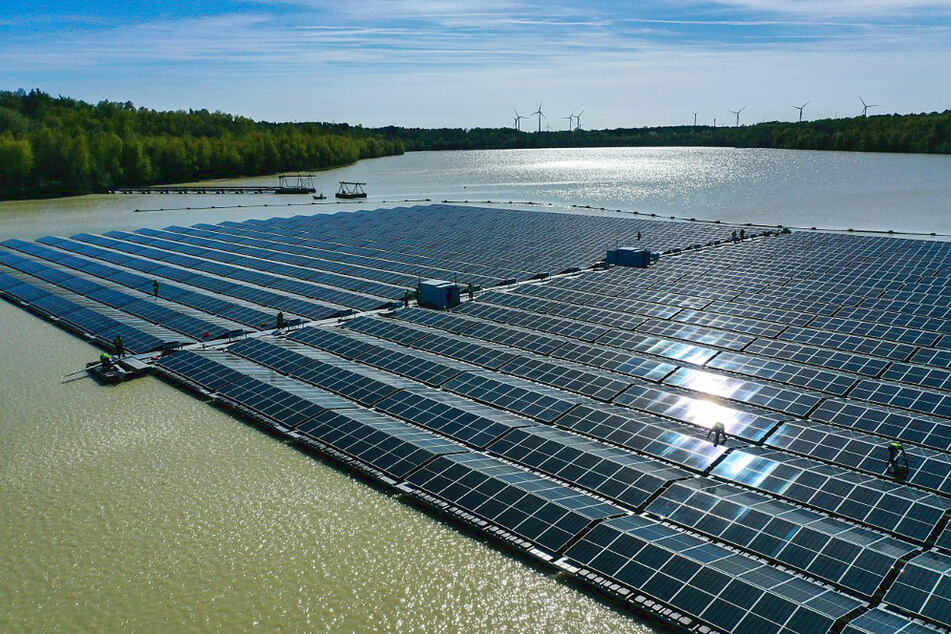Floatovoltaics: How floating solar panels could meet all our electricity needs
New York, New York - Adding new solar panels is key to kicking our fossil fuel habit, but where to put them? Enter "floatovoltaics," solar farms that sit on our waterways.

As solar power amps up in the US, installers are running into a problem: there isn't unlimited space in the country.
To meet climate goals and get rid of greenhouse gas emissions from coal and gas-fired power plants, the US will likely need over 37,000 square miles of solar panels by 2050, which is roughly the same size as the states of Indiana or Virginia.
That's why one research team got their feet wet figuring out where new solar farms could, well... float.
They published a new study in Nature showing that using solar panels to cover just 10% of the water behind the world's dams would be enough to replace fossil fuels used to generate electricity.
Floatovoltaics are a solid option
Figuring out where to put solar panels has always been tricky, because they take up more space than traditional fossil fuel plants. But setting them up on water can be a combo package: it would actually keep the panels cooler, making them 5% more efficient on average, which is a huge boost in the solar panel world.
The floating panels are also great for whatever waterway they sit on, because they provide shade and drop the amount of water that is lost to evaporation.
And the good news is that, despite being a fairly new technology, these floating solar panels only cost a bit more to produce than the traditional land-based ones.
Innovative industries like the "floatovoltaic" approach are a massive part of the climate solution, and as the report's authors say, they are moving fast. That means "science and policy must move equally fast" to keep up.
Cover photo: INA FASSBENDER / AFP
